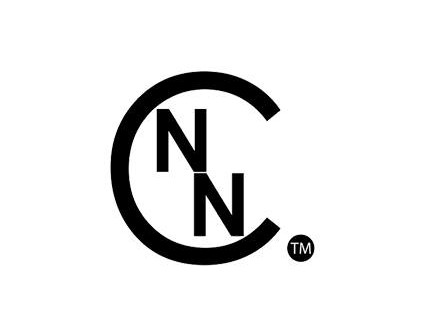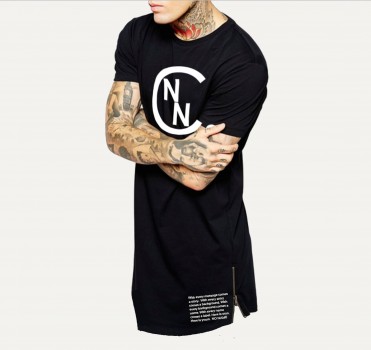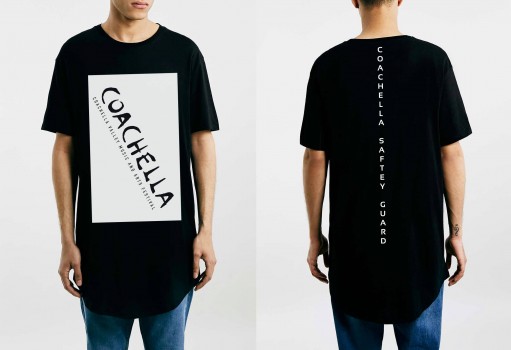Sweden based company No Name Clothing is aiming for a US market. These are the plans, visions and challenges of two international Santa Barbara based entrepreneurs.
“With every message comes a story, with every story comes a background, with every background comes a name, with every name comes a label, here is ours; No Name Clothing”
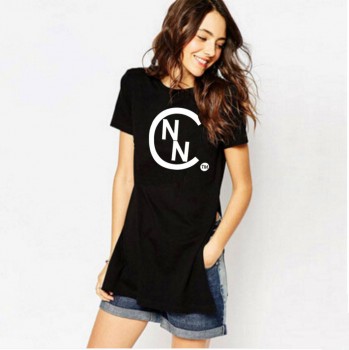
The future of simple fashion.
Everything about clothing now a days is about the brand. People are chasing something that in the end doesn’t benefit or fulfill their necessary needs. There are so many people that are failing and feel miserable because they are chasing the wrong things and decreasing their balance with their basic needs that essentially determine our well-being. Today there is too much pressure to follow the principles of how to look, what to wear, how to wear it.
Chakib Youcefi (AUSB) and Lisa Rosen (SBCC) want to change this societal toxicity. They are two Swedish students who in the Fall of 2014 pursued their dreams of moving to California. They both share the common factors of previous experience in sales and a strong passion for business and fashion.
That’s how they came up with their business idea that will bring a new look to the everyday person and function as an advocate for the previously mentioned aspect of brand clothing that they consider harmful and in need of change. They aim to change the concept of brand clothing with a new-thinking image behind their brand; de-emphasizes the image of a brand itself, and bring more focus to the character who’s wearing it.

“These days we use all our time, energy and resources and aim towards this tunnel vision filled with individualistic materialism” – Co-founder Lisa Rosen
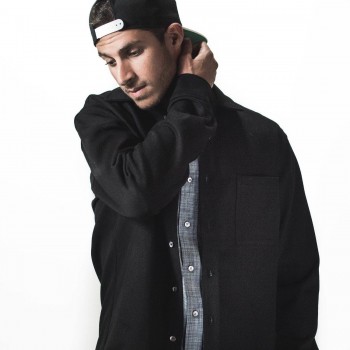
“What you wear should just be an extension of yourself and not what defines you” – Co-founder Chakib Youcefi
What demographic do you belong to? Doesn’t matter, it suits you.
Tell us about No Name Clothing: Officially registered in February 2016, it is the result of many different ideas that have shaped and formed the brand to what it is today. We started sketching on ideas back in September 2015, not entirely sure of what we were aiming for apart from their agreement of focusing on clothing and textile products. Our first thought of plan was to focus on jackets but we quickly realized that it was too expensive due to the minor detail regarding material and production needed in order to successfully compete with other companies with similar products. We needed something else that could that could start building capital, so they wanted to make something innovative that could fashionably be used by anyone at any time.
When you find a piece of clothing that you admire, it commonly turns out to be one of the more expensive alternatives. That’s because the company behind the brand know what their target market wants so they make their “extra appealing” products more expensive, simply because they can. No Name Clothing essentially views this as a golden opportunity to change the concept of brands.
What opportunities did you see in this product? Most branded products, specifically speaking clothing, is produced in Asia. Exclusive brands are raising the price to a ridiculous extent compared to the cost of production. That’s because quality usually is derived from the price of a product, but the fact is that clothing brands of different exclusivity is more or less produced in the same factories. People are paying everything between $1000 and $10 for clothing that is produced in the same factory.
If the production process behind clothing is emphasized in the brand image of No Name Clothing, people will understand how consumers are paying hundreds of dollars for products that are being produced the same way as products of cheaper prices. The initial goal of No Name Clothing resulted from this “loophole” in the clothing industry; we want to give people what they need without having to worry about the brand. Our clothing should always be an option to the questions “what should I wear now?”.
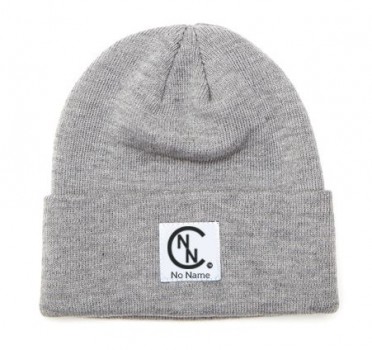
Beanies fit all people of all ages.
A message from the owners of No Name Clothing: We think it is profoundly important that the value is in the person, not in the clothing. We truly believe that if one right, the smallest ideas can make the biggest changes. What you wear shouldn’t matter and we have two message to get our concept exposed and understood. There are two different parts to our message:
We don’t want the person to look at the brand, but look at the person who’s wearing it. As of right now, people are judging and being judged based on the name and logo found on their clothing, and we think this is wrong. We are working on our first campaign which will be called “Don’t Be Framed”. Our campaign is intended to emphasize on the idea to not let your t-shirt tell others your story, but let your story tell others about your t-shirt. Everyone is competing for the same thing, and our clothing has no association to competition what so ever. It is there to bring out comfort both visually and internally.
Festival security will be wearing No Name Clothing in the near future.
We want people to see the person, not the clothing. People commonly see another persons value because of what they are wearing. We want the elderly man working in his garden to wear it, we want the 30 year old female millionaire CEO to wear it, we want the security guard at Coachella to wear it; it is intended for everyone, somewhat like the Apple product of clothing. We want everyone to feel welcome into the world of No Name Clothing, and how many other clothing companies have this mindset? A suit company wouldn’t target prisoners, Chanel doesn’t target the washed-up rugby player, but we do. Our brand stands for whatever you want it to stand for, you tell the story of your shirt.
Despite their genius idea behind No Name Clothing there are far too many challenges and barriers to establish a company here on a student visa. The rules and regulations of a student visa causes a lot of restrictions regarding job opportunities.
What are the biggest business challenges right now? As of right now we are based in the United States but our company is registered in Sweden. Due to legality issues, we can only operate the business in Sweden, but we hope to reach the US as soon as possible through online orders. Unfortunately that is when it gets complicated. Our clothing is inspired by California and we hope to sell it abroad, but we are somewhat unsure of what demographic of people will appreciate our message more. At this stage we can’t tell if it would sell better in Sweden or in the US.

Visa restrictions can be somewhat unclear for international students.
International students are here on a so called F-1 Visa. An F-1 Visa allows a person access to the country, but prohibits any job opportunities outside of your school, and starting a business is near impossible with the current political structure.
What are the requirements of getting established in the United States? It is really hard to balance the legality between our personal location in California and our companies base in Sweden. We are not taking any risks that would cause our visa to cease. If we commit a “Visa Violation”. As a foreigner you may start a company in the US under the circumstances that you invest approximately $400,000 in that company.
$400,000 is not a relevant or suitable quote for any student looking to start a business. There are so many international and multicultural ideas that are invented and shaped in the US, but the current system does not allow for these profitable ideas to go through. As for Chakib and Lisa, not only are we doing this for our personal achievement, but it’s always fun to increase Sweden’s image and potential on a global scale.

